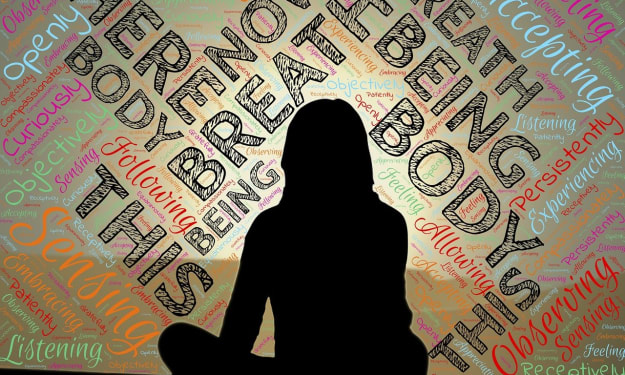The Mind-Body Connection: How Physical Health Affects Mental Wellbeing
SOS -Sense of Self-Worth

Introduction:
In our pursuit of well-being, we often tend to focus on either our physical health or mental well-being separately. However, emerging research has revealed a profound interconnection between the two. The mind-body connection emphasizes that physical health and mental well-being are deeply intertwined, influencing each other. In this article, we will explore the powerful relationship between physical health and mental well-being, share real-life examples of individuals who have experienced the transformative effects of this connection, and inspire you to prioritize both aspects of your health for a more holistic and fulfilling life.
Exercise and Mood Enhancement:
Regular exercise has a significant impact on mental well-being. Engaging in physical activity releases endorphins, also known as the "feel-good" hormones, which elevate mood, reduce stress, and increase overall happiness and well-being.
Real-life Example: Sarah, who struggled with anxiety, incorporated regular exercise into her routine. Through activities such as jogging and yoga, she experienced a notable improvement in her mood. Physical exertion served as a healthy outlet for stress and boosted her confidence and sense of self-worth.
Nutrition and Mental Clarity:
Our food directly affects our brain's function and overall mental clarity. A balanced diet rich in essential nutrients, vitamins, and minerals provides the fuel for optimal brain health, promoting mental focus, concentration, and overall cognitive function.
Real-life Example: John, who had experienced periods of brain fog and lack of focus, made dietary changes to include nutrient-dense foods. By incorporating fruits, vegetables, whole grains, and lean proteins into his diet, he noticed increased mental clarity and improved ability to handle challenging tasks effectively.
Sleep and Emotional Well-being:
Adequate sleep is crucial for maintaining good mental health. During sleep, the brain processes emotions and consolidates memories, enabling us to regulate emotions and make rational decisions. Lack of sleep can lead to increased irritability, mood swings, and difficulty managing stress.
Real-life Example: Emma, who had chronic insomnia, sought professional help to improve her sleep patterns. With better sleep quality and duration, she experienced significantly reduced anxiety and a more balanced emotional state.
Stress Reduction Techniques and Mental Resilience:
Chronic stress can take a toll on both physical and mental health. Engaging in stress reduction techniques such as meditation, deep breathing exercises, or engaging in hobbies can help regulate the stress response and enhance mental resilience.
Real-life Example: Mark, facing high-pressure work demands, incorporated mindfulness meditation into his daily routine. This practice allowed him to cultivate a sense of calm amidst the chaos and develop resilience in the face of stressors.
Social Connections and Emotional Support:
Building and nurturing social connections plays a crucial role in maintaining mental well-being. Positive social interactions provide emotional support, a sense of belonging, and opportunities for self-expression, which contribute to overall happiness and life satisfaction.
Real-life Example: feeling isolated and lonely, Julia actively sought to connect with others by joining a community group. By engaging in social activities and forming meaningful relationships, she experienced improved mental well-being and a greater sense of belonging.
Physical Health as a Confidence Booster:
Taking care of our physical health can positively impact our self-esteem and body image, improving our mental well-being. Engaging in activities that promote physical fitness and personal care can boost confidence and foster a positive self-image.
Real-life Example: Alex struggled with low self-confidence, started a regular exercise routine, and practiced self-care activities such as grooming and dressing well. This self-investment in physical health empowered him with a newfound sense of self-assurance and improved overall mental well-being.
Conclusion:
The mind-body connection is a powerful reminder that physical health profoundly influences mental well-being. By recognizing and nurturing this connection, we can holistically approach our well-being and enhance our quality of life. The real-life examples of Sarah, John, Emma, Mark, Julia, and Alex highlight the transformative effects of prioritizing physical health for mental well-being. Embrace the mind-body connection, prioritize regular exercise, healthy nutrition, quality sleep, stress reduction techniques, social relationships, and self-care practices. You can unlock a more fulfilling, balanced, and joyful life by nurturing your physical and mental well-being.
“What drains your spirit drains your body. What fuels your spirit fuels your body.” – Caroline Myss
About the Creator
Cynthia Wolf
Caught in a death trap, the worst kind of mind prison. A lightning bolt surged through me. If one person has passed on the volts of electricity bestowed upon me, mission accomplished. The fire in me now lives in you SOS Sharing Our Story Xo






Comments
There are no comments for this story
Be the first to respond and start the conversation.